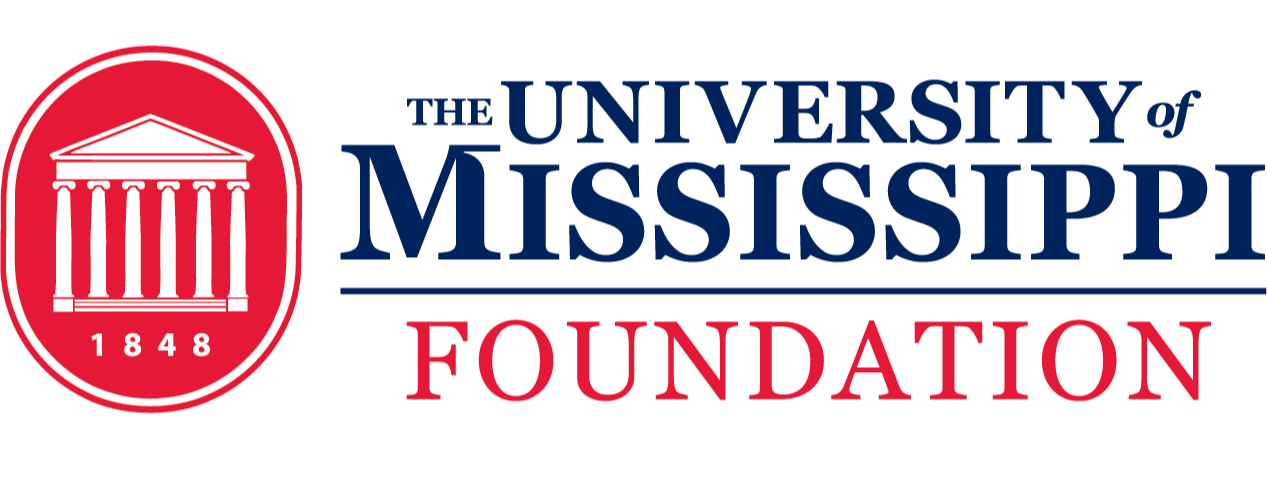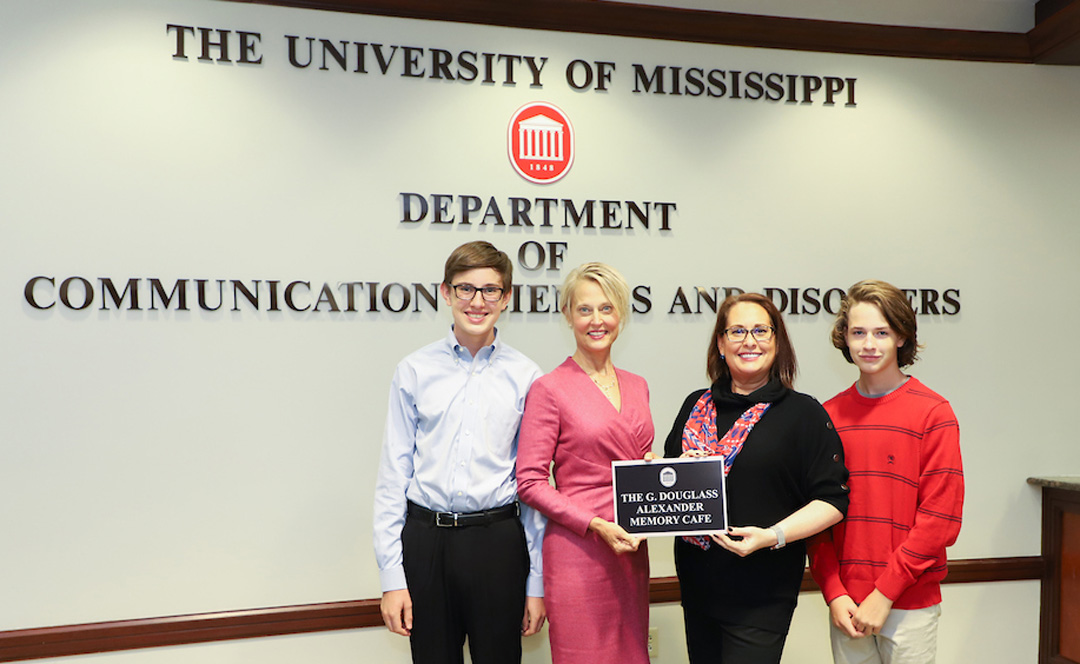When Doug Alexander was diagnosed with Lewy body dementia in 2018, he was determined to do all that he could to stay healthy and help others who had similar diseases.
Now, a generous gift established by his family – wife, Kristina Carlson; daughter, Elisabeth Alexander; son, Captain Alexander; and grandson, Tanner Johnson, all of Oxford, Mississippi – has honored his wish to help those affected by dementia by establishing the G. Douglass Alexander Support Fund to benefit the Department of Communication Sciences and Disorders (CSD) at UM.
Lewy body dementia, or LBD, is a progressive dementia that causes individuals to decline over time in their ability to function independently. Some significant difficulties associated with LBD include hallucinations, delusions, short-term memory loss, challenges to clear and logical thinking and problem-solving skills, and short-term memory loss.
Within the Department of Communication Sciences and Disorders, the University of Mississippi Speech and Hearing Clinic provides dementia clients with screenings as well as comprehensive assessments not only to document memory issues but also provide insight about the personalized intervention each client will benefit from. Alexander began participating in cognitive therapy at the UM speech and hearing clinic in July 2018.
“This donation is a great incentive for the Communication Sciences and Disorders Department to improve our services to individuals with memory issues and their caregivers,” said Vishakha Rawool, chair and professor of communication and speech disorders at UM. “It also strengthens our commitment to improve the quality of life of individuals with dementia.”
The gift will fund improvements to the Department of Communication Sciences and Disorders hospitality room which will be renamed the G. Douglass Alexander Hospitality Room, establishing it as a memory café.
Memory cafés, also called Alzheimer’s cafés, are typically designed to provide a caring and stigma-free social environment for people living with dementia and their family members, friends and professional caregivers. Memory cafés have the potential to decrease the social isolation that can often accompany clients with dementia.
“Our Department of Communication Sciences and Disorders is in a unique position to enhance the café concept by seamlessly integrating speech-language therapy to improve both cognitive and social communication of individuals with dementia,” Rawool said. “In addition, this will be an excellent opportunity for graduate students enrolled in the communication sciences and disorders master’s degree program to design unique therapeutic approaches within the memory café environment and practice implementing these approaches while meeting the needs of each individual.”
The other half of the family’s gift will provide the funds to improve the physical environment of the clinic by adding furniture that will more easily accommodate the physical needs of older adults and allow easier implementation of disinfection protocols.
There is no cure for LBD, however cognitive therapies can help patients maintain cognitive function for as long as possible. The goal of speech-language services is to improve the quality of life of patients with dementia.
Elizabeth Burklow, a UM speech-language pathologist, began working with Alexander in 2018. She also supervised graduate students, and together they all sought to ensure Alexander was receiving the therapy needed to continue to enjoy his everyday life.
“Doug’s personal goals were to stay active, mentally and physically, for as long as possible, and to remain an active member of his family and community,” Burklow said. “We worked on using environmental cues, such as calendars, clocks and windows to stay oriented to the time of day, and we also worked on strategies to remember what had been said in conversation or what had happened in a movie or book, so he could enjoy his favorite everyday activities.”
Alexander completed daily homework outside of the speech and hearing clinic to keep his brain active each day.
“Doug had a great sense of humor and a natural ability to put people at ease and make someone feel welcome,” said Burklow. “Doug was more than a client. He was also my friend.”
Alexander graduated from Oglethorpe University in 1968 with a bachelor’s degree in business and earned a master’s degree in business from Georgia State University – but was an Ole Miss fan at heart. Until his health prevented it, he attended every Ole Miss football game, home and away. After battling LBD for several years, Alexander passed away in April 2020.
“Doug was very open about his disease, educating people on Lewy body dementia whenever he could,” Carlson said. “His passion for education is why we feel it is so important to ensure that everyone in the region knows not only about Lewy body dementia but also about the wonderful work being done at the Speech and Hearing Clinic within the Department of Communication Sciences and Disorders at Ole Miss.”
To contribute to the G. Douglass Alexander Fund, send a check with the fund noted in the memo line to the University of Mississippi Foundation, 406 University Ave., Oxford, MS 38655; or online at https://give.olemiss.edu. For more information on supporting the Department of Communication Sciences and Disorders, contact William Fisher, development officer, at wjfisher@olemiss.edu or 662-915-2293.
For more information about the Department of Communication Sciences and Disorders, visit https://csd.olemiss.edu/.
By Meaghan Flores

